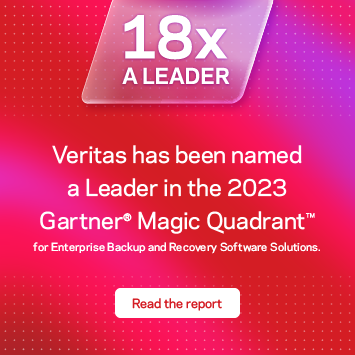- VOX
- Technical Blogs
- Protection
- It’s time to get your head in the cloud
It’s time to get your head in the cloud
- Subscribe to RSS Feed
- Mark as New
- Mark as Read
- Bookmark
- Subscribe
- Printer Friendly Page
- Report Inappropriate Content
Enterprise Cloud Backup and Recovery
Until recently, the term “cloud” was jargon - simply a notion in the tech space. Enterprises were talking about it and thinking about it, but were hesitant to roll out cloud solutions on a wide scale or to even introduce the cloud into their IT platform. According to the latest Forrsights survey, nearly half of all enterprises in North America and Europe will set aside budget for private cloud investments in 2013 and nearly as many software development managers are planning to deploy applications to the cloud.
Cloud storage is becoming less expensive by the moment and a cloud solution can be more cost effective with the right use model. Additionally, backing up to the cloud for DR storage will decrease costs and is much more user friendly compared to traditional DR - and data can be recovered faster.
A number of trends are the driving force behind our need for alternate sources of storage:
- Corporate governance - internal policies and procedures may require specific retention policies i.e. Sarbanes-Oxley which requires businesses to maintain and back up a variety of data that may have otherwise been deleted
- Data growth often forces companies to consider lower cost alternatives
- Viruses and spyware require more frequent backups, which require more storage capacity
- New versions of software applications or operating systems demand more hard drive real estate
- Increase of large media files - Video links and the need to make them available to users on a network is generating demand for more sophisticated storage solutions
Should I include cloud as part of my backup and recovery strategy?
Some companies are simply hesitant to adopt a new technology, and large enterprises with their extended IT departments can be slow to implement change. Many organizations are, in fact, leveraging hybrid cloud backup as employees, business units, and big data are driving IT departments to implement cloud.
A key challenge enterprises are faced with during backup and recovery is meeting SLA’s – they’re experiencing long backup windows, increased bandwidth costs, and unmet recovery time objectives. At the same time, there’s an ever-present need for OpEx reduction. NetBackup Accelerator can help users providing up to 100x faster backups and the NetBackup 5220 Appliance can provide an additional 10x faster throughput with its WAN optimization driver. And NetBackup’s ability to write data to the cloud can give users the flexibility to add cloud for OpEx reduction.
Companies need to consider updating their disaster recovery plan as they are evaluating cloud backup and recovery. In the past, cost has been a major obstacle for DR preparedness. Now, with economical cloud storage solutions, companies can replace or augment tape-based off-site storage with cloud for disaster recovery readiness. Compared to traditional DR, users will experience faster, more user-friendly data recovery while decreasing costs. NetBackup seamlessly integrates with the following industry-leading cloud storage providers: Amazon Web Services (AWS), AT&T, Nirvanix, and Rackspace.
There is also concern that data in the cloud cannot be protected as adequately as data backed up on-premise. Whether writing data to the cloud, leveraging cloud for DR, or backing up applications running in the cloud, users can, in fact, maintain the same level of protection as on-premise backup with the NetBackup platform. NetBackup ensures information availability and compliance.
As a platform solution, NetBackup makes cloud backup and recovery less complicated. Users can manage and monitor their data and applications from one place though a uniform single point management console – both on-premise and in the cloud.
As companies begin IT planning for 2013, it’s a perfect time to consider whether cloud backup and recovery is right for their organization. Companies must look at their operating environment and consider the benefits of building a private cloud or selecting a cloud storage provider. It’s important to keep in mind that these cloud storage platforms are not backup solutions and if a disruption impacts the service, data may not be protected. NetBackup can help ensure a smooth transition to the cloud for backup and recovery needs while meeting more stringent application and user recovery requirements. Leveraging the cloud for storage, backup, and recovery will soon become a fundamental component in enterprise IT environments.
You must be a registered user to add a comment. If you've already registered, sign in. Otherwise, register and sign in.
- Power-up ransomware resiliency with retention lock/WORM in Protection
- Understand, Plan and Rehearse Ransomware Resilience series - Day 1 in Protection
- Understand, Plan and Rehearse Ransomware Resilience series - Design to Recover in Protection
- Understand, Plan and Rehearse Ransomware Resilience series - Access and Improve in Protection
- The Backup Exec 22.2 Beta Program - Register Now! in Backup Exec

